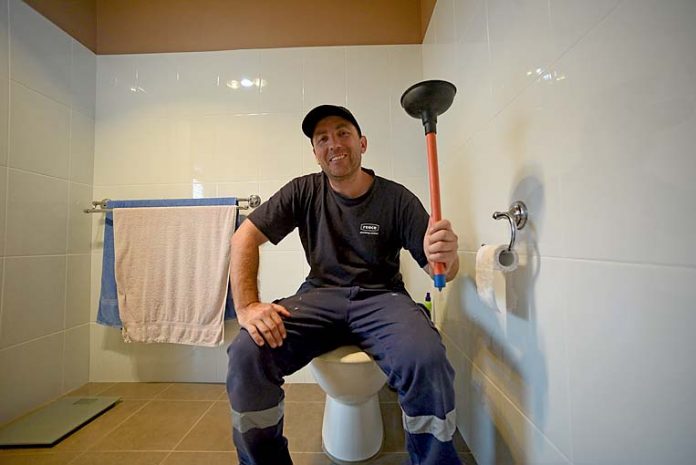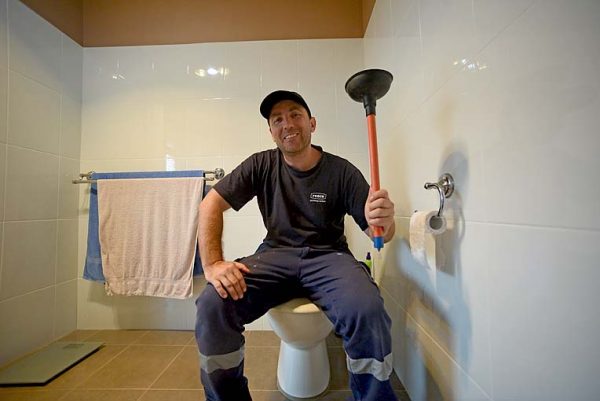

A MOUNT Gambier plumber has warned people must stop flushing tissues, wet wipes and paper towels into the sewer system as the toilet paper shortage continues to grip the city.
Plumber Matthew Collins has witnessed a spike in call-outs for blocked toilets and warned the issue will escalate given empty toilet paper shelves across the city’s stores.
His comments come as the state’s water authority calls on people to only flush toilet “paper, pee and poo” amid a significant rise in the number of unflushables flowing through the system.
With toilet paper stripped from supermarket shelves fuelled by coronavirus panic buying, some residents have resorted to using tissues, wet wipes, paper towel and even newspaper as a substitute.
This trend has lead to tissue and paper towel shelves emptied across the city.
Security personnel have also been employed at Mount Gambier supermarkets to ensure people buying toilet paper are following restrictions.
“People are using whatever they can because they just cannot get toilet paper. I have seen flushable wipes and paper towel causing blockages,” Mr Collins said.
He said this trend was just the start given it could take up to six months for drains to block up.
According to Mr Collins, this practice could result in people’s money going down the drain because they will need to call a plumber to rectify a potential blockage.
“These blockages are just a matter of time because you are using stuff that does not break down. It is not a matter of if, but when,” the plumber warned.
He said there was a misconception among the community that paper towel and tissues would break down in the system.
“When it goes into your drain this material does not break up but holds the water,” Mr Collins said.
He warned flushable wipes were a particular problem.
“If your toilet comes up and comes down, this is the biggest sign the system is blocked,” Mr Collins said.
During these unusual times, SA Water had reiterated Limestone Coast residents to only flush toilet paper and no other products.
SA water customers, strategy and Innovation general manager Anna Jackson said flushing anything other than the “three Ps” could lead to the awful, inconvenient and potentially costly experience of a sewer overflow.
“In the current situation we’re all in, we understand people are trying to conserve their toilet paper use and are perhaps starting to use another household item to clean up,” Ms Jackson said
“Unfortunately, flushing things like tissues, paper towel, wet wipes or newspaper down the toilet can lead to problems for both you and our crews, because unlike toilet paper, which is deliberately designed to break down in around 30 seconds, these other items do not disintegrate in the sewer system.
Wads of material can build up behind another foreign object in the pipe, such as tree roots, or get stuck in congealed fats and oils to form a blockage or “choke”.
“Chokes can occur in our mains or your internal plumbing and more often than not result in everything in the pipe breaking out into the environment or unfortunately coming back up through your toilet or drain, requiring a plumber or one of our crews to clean up the mess,” Ms Jackson said.
Some objects make it all the way to SA Water’s wastewater treatment plants and over the past few weeks, some of the utility’s treatment plant operators in metropolitan and regional parts of the state have detected a rise in the volume of unflushables coming through.
“If you must resort to using any unflushable items, then follow the lead of some of our overseas friends and have a small bin in the toilet or bathroom for easy disposal,” Ms Jackson said.
“If you do experience a blockage or overflow within your internal plumbing, contact a licensed plumber to investigate further.”
If your plumber decides the fault is within our infrastructure, they will contact our customer care centre to have the problem fixed.







